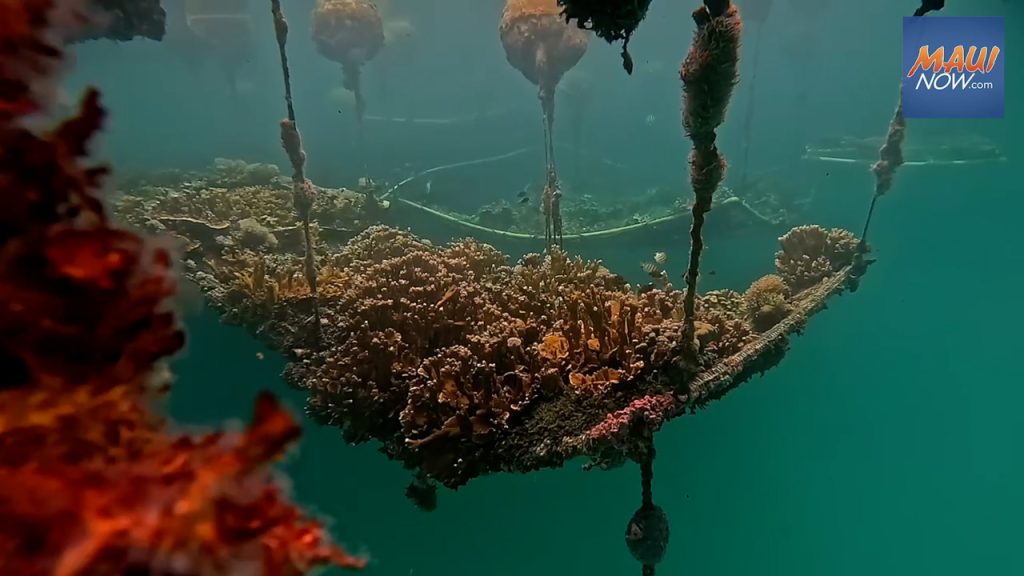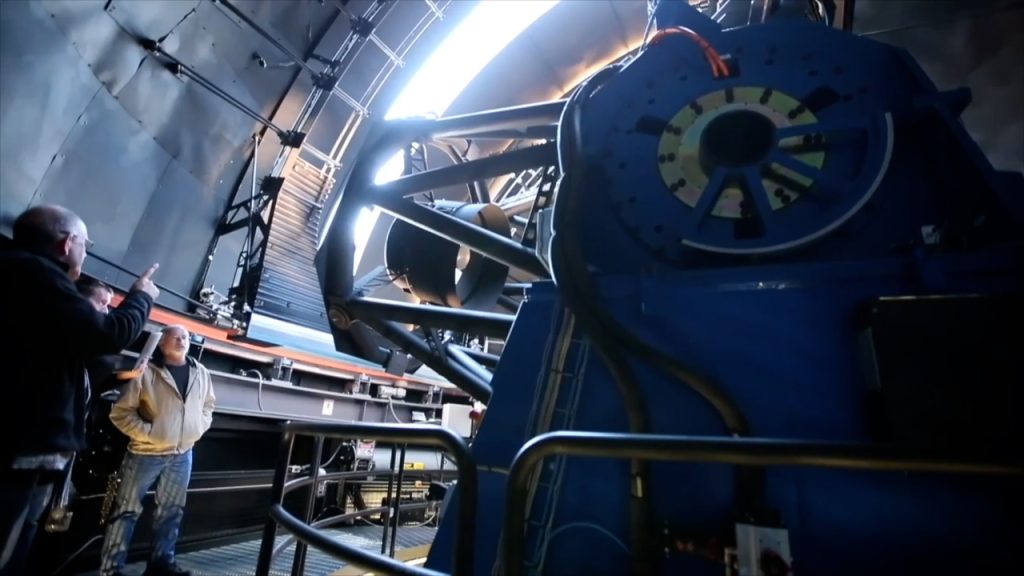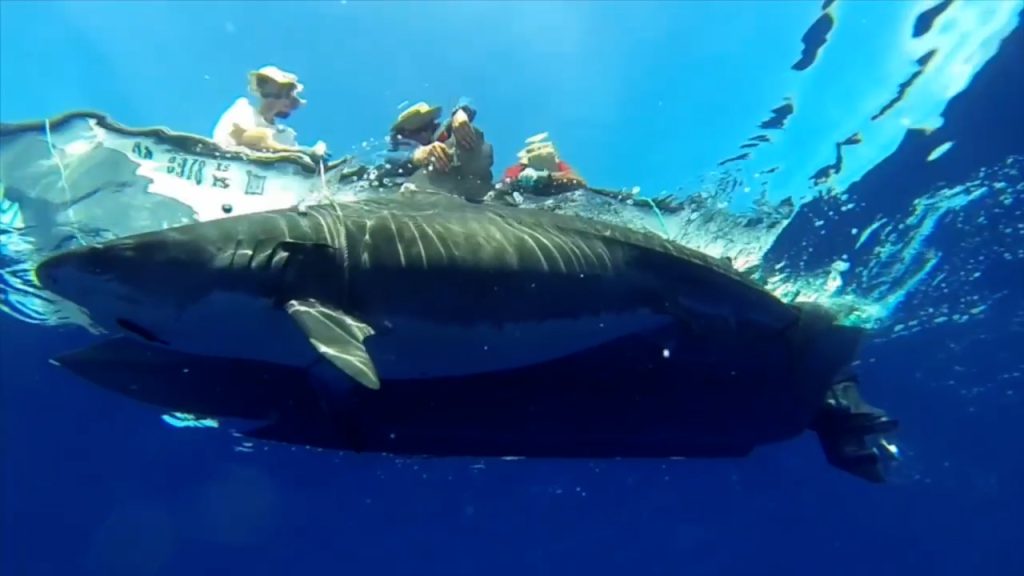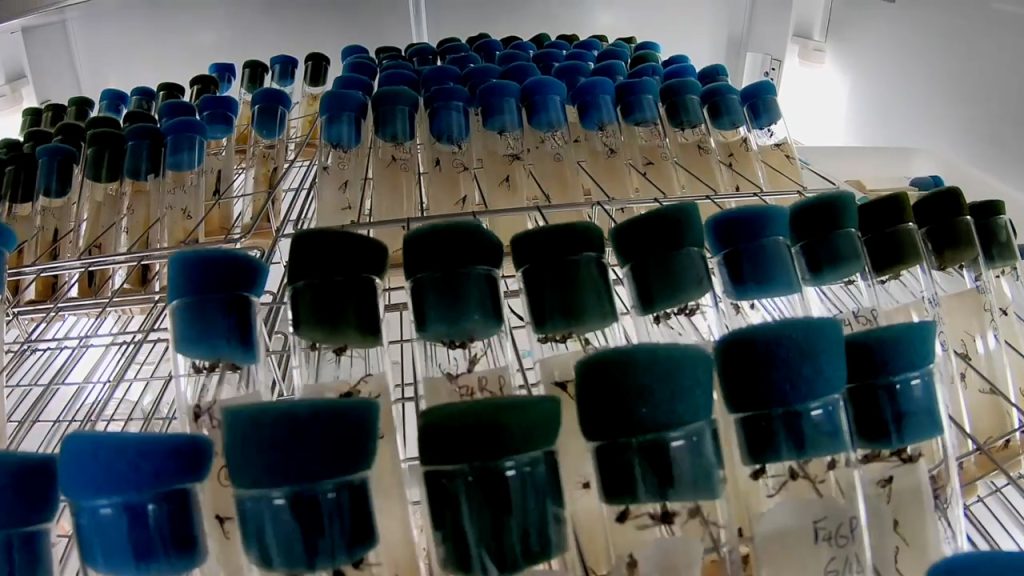UH breaks record for third consecutive year with $615.7M in extramural funding

The University of Hawaiʻi set another extramural funding record with $615.7 million in fiscal year 2024. This marks the third consecutive year that UH has topped half a billion dollars in funding with a record-setting total that is a $99.8 million or a 19.3% increase over UH’s previous record of $515.9 million set in FY 2023.
Extramural funding is external investments from external agencies such as the federal government, industry and non-profit organizations that support research and training activities conducted by university faculty and staff. Extramural projects support research and innovation that helps to increase the knowledge base and provide solutions that impact the quality of life across Hawaiʻi and beyond.
“Setting back-to-back-to-back records in extramural funding is truly an impressive achievement for the University of Hawaiʻi and our state,” said UH Vice President for Research and Innovation Vassilis L. Syrmos. “Our faculty, staff and students have once again answered the call with their hard work and dedication to grow the UH research enterprise, and at the same time, helping us to serve as a major contributor to Hawaiʻi’s economy.”
Syrmos noted that UH research expenditures contribute to Hawaiʻi’s economy through business sales, employee earnings, state tax revenue and job creation; and serves as the main component in the diversification of the state’s economy.
Based on the findings of a 2021 economic impact report published by the UH Economic Research Organization, $615 million in extramural funding is estimated to generate $947 million in total business sales, $434 million in employee earnings and $53 million in state tax revenue, and is currently supporting over 10,000 jobs (UH and RCUH employees)
“This steadily increasing investment in UH by external organizations, now totaling well over $1.5 billion dollars in the past three years, demonstrates global recognition of the greatness of Hawaiʻi’s public higher education system,” said UH President David Lassner. “Every one of these dollars is a testament to the intellectual capacity and capability of our entire UH community to address the challenges and opportunities facing Hawaiʻi and our planet.”
UH Mānoa, UH’s flagship university, led the extramural award amounts this year with $464.9 million. The UH System brought in $71.2 million, UH Community Colleges totaled $51.1 million, UH Hilo received $22.6 million and UH West Oʻahu totaled $5.9 million.
“State appropriations provide a foundation for the strong research enterprise that allows us to bring in even more resources, enabling us to do so much more for Hawaiʻi than we could do with General Funds and tuition alone,” said Lassner.
Examples of UH programs that attracted the attention of funders:
- UH Hilo was awarded $2.3 million of a first-of-its-kind, $6.6 million grant by the US Department of Education to lead a three-university consortium to establish a National Native American Language Resource Center that will advocate for and implement training and resource development for Indigenous language education pathways in the US.
- The College of Tropical Agriculture and Human Resources at UH Mānoa received a $10.6 million sub-award from the Lynker Corporation to establish the Hawai‘i Climate-Smart Partnership to assist Hawai‘i farmers, ranchers and foresters to implement climate-smart practices and to establish stronger markets for locally produced healthy food and products.
- The US Army Corps of Engineers awarded a $5.2 million cooperative agreement for natural resources and threatened and endangered species management by the Army Natural Resources Program O‘ahu, which is administratively run by the UH Office of the Vice President for Research and Innovation.
- The US Department of Education awarded the Office of Indigenous Knowledge and Innovation $1 million to Cultivating 21st Century Leaders Through an Indigenous Data Hub in Kohala, Hawai‘i to expand this initiative to the Hawai‘i Island community.
- The US Department of Health and Human Services’ Office of Minority Health awarded a $2 million cooperative agreement to the UH Center for Indigenous Innovation and Health Equity to continue community-based efforts to address health disparities in Native Hawaiians and Pacific Islanders.
- The Institute for Astronomy received a $5.8 million grant from the National Aeronautics and Space Administration to continue a wide area survey of Near Space Objects at its Pan-STARRS observatory on Haleakalā, Maui.
- The Henry M. Jackson Foundation for the Advancement o f Military Medicine awarded $4.1 million of a $27.1 million sub-award to the UH System Office of Strategic Health Initiatives to establish the Red Hill Independent Health Registry to provide direct support and resources to individuals impacted by the fuel spill and water crisis.
- UH Mānoa’s Pacific Biosciences Research Center received $4.2 million of a $11 million grant from the National Institutes of Health to establish an Integrative Center for Precision Nutrition and Human Health to foster more impactful and relevant research to communities most affected by nutrition-related health conditions.
- The National Science Foundation awarded a $824,999 grant to Windward Community College for its collaborative proposal with multiple tribal colleges to advance cybersecurity education.
Syrmos added that more than $80 million in awards received from the federal government, which have significant impacts to the state and the nation, were secured through the close coordination between UH and Hawai‘i’s congressional delegation, which includes US Senators Brian Schatz and Mazie Hirono and US Representatives Ed Case and Jill Tokuda.
“We have talked for decades about diversifying Hawai‘i’s economy and it makes me so proud to see that the University of Hawai‘i is doing it,” said Gov. Josh Green. “Three consecutive years of topping half a billion dollars in extramural funding and this year, setting a record of $615.7M, is incredible. Having the best and the brightest researchers at UH boosts our state’s economy and provides access to valuable insight and expertise in dealing with problems facing our community, like COVID-19, climate change, conservation and renewable energy. It also demonstrates to our young people, considering their futures, that coming to UH and staying in Hawai‘i to advance their careers is indeed an option.”
“UH is a world-class institution for research and higher education that’s helping power Hawai‘i’s economy,” said US Sen. Brian Schatz, a member of the Senate Appropriations Committee. “Our work to secure record federal funding for UH this year will help build a new Native language center in Hilo, support research on climate change and health disparities, improve educational programs across its ten campuses, and help strengthen the UH system for thousands of students and faculty.”
Fellow Sen. Mazie Hirono said, “This historic funding for the UH System has supported a broad range of projects on UH campuses throughout the state, enabling UH faculty and students to do more cutting-edge research on issues critical to our state, our country, and our planet. This funding is a testament to UH’s ambitious pursuit of competitive federal funding, and I’ll continue working with my colleagues in the Congressional delegation to support federal funding for institutions across Hawai‘i.”
“This third straight year of record increase in federal and other extramural funding for the University of Hawai‘i is very good news on several levels,” said US Rep. Ed Case. “First, it is a testament to UH’s growing research and innovation talent and international recognition. Second, it reflects the advanced partnerships that UH has forged in successfully identifying and jointly pursuing funding opportunities including with our Hawai‘i Congressional delegation. Third, it increases UH’s contributions to our overall Hawaiʻi economy in creating and expanding connected businesses and high-quality jobs. As good as this result is, there is plenty of room for continued growth on all levels as we all stay focused on further opportunities. But for now, great job UH!”
Fellow US Rep. Jill Tokuda said, “UH has long been a research one (R1) university ranking among the country’s elite institutions, but this new record level of extramural funding sets it apart in its ability to both perform and innovate. While the infusion of well over half a billion dollars in research dollars is significant to our local economy, what excites me is the learning and career opportunities it provides our local youth and the ability for them to remain in Hawai‘i to work in fields they are passionate about.”


















_1768613517521.webp)


